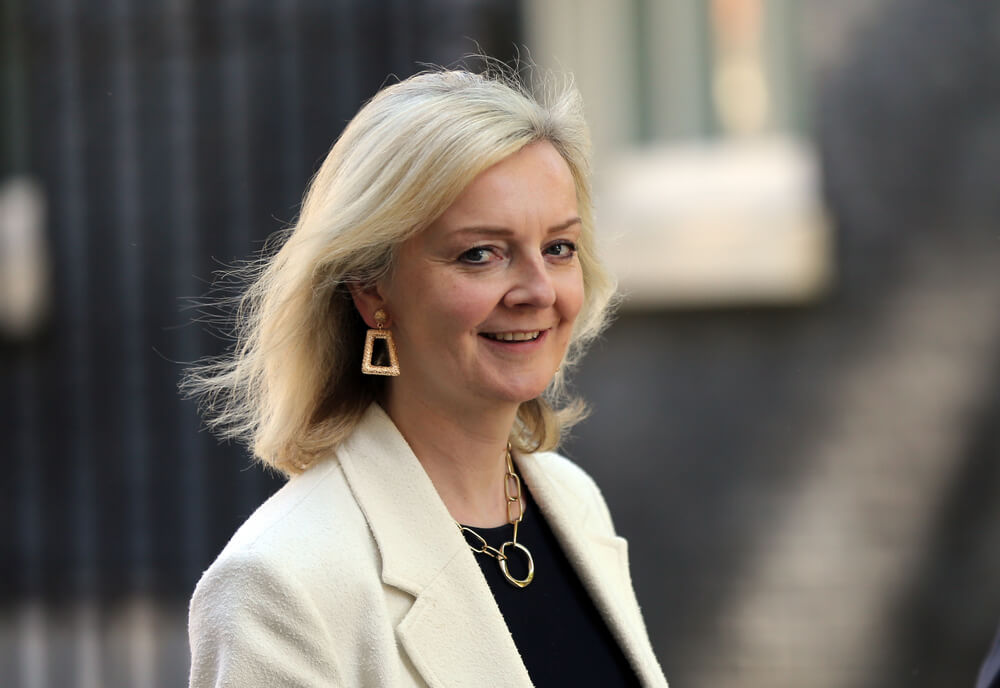EDINBURGH, Scotland — These are trying times for the British, as I am finding on a visit to Scotland with a brief foray south into England. All isn’t right with their world, and there are expectations that the winter will be the hardest to bear since the long-ago days of the end of World War II.
The price of everything is up with inflation at 10 percent and predicted to top that by as much as double.
Compounding that, there is a sense that nobody is in charge. The new prime minister, Liz Truss, has had a disastrous beginning with a revolt of the rank and file of her own Conservative Party. She has had to eat her words and, according to the New Statesman, has had the worst imaginable beginning for a new prime minister. Truss seems to have abandoned traditional conservative principles and that, together with her own wobbly trajectory, has the party worried.
The centerpiece of doubt about the prime minister is a mini-budget that her chancellor of the exchequer, Kwasi Kwarteng, introduced just after she was elected to the leadership. It called for more spending and a cut in the top income tax rate from 45 percent to 40 percent.
This was supposed to encourage business, but even diehard conservatives couldn’t justify a lot of new spending — needed to ease the burden of energy costs — while slashing revenue. Rather than making businesses happy, the proposal sent the pound into a free-fall and the markets into turmoil.
According to her many critics, Truss did a U-turn, a maneuver she has done often in her career.
Another misstep happened as the Conservatives assembled in the central English city of Birmingham for their annual party congress: The prime minister refused to guarantee that social spending would be linked to the cost of living.
Complex social obligations in Britain are lumped together under the rubric “benefit.”
“No, no, no,” cried the party, including cabinet members. Benefits had to be indexed to the cost of living.
But not all of the mess is of Truss’ making. Things were in sorry shape when the party sacked the previous prime minister, the notoriously articulate but incompetent Boris Johnson.
The economy was faltering, labor unrest was building, and issues such as education, health care, immigration and the Northern Irish border demanded strong, deft leadership.
The result has been that the Tories, as the Conservatives are called, are between 14 and 30 points behind the opposition Labor Party in the polls, and they are expecting a drubbing in the next election in two years unless Truss can pull things together. The somber mood in Birmingham suggests that gloom will turn to doom.
The Truss government is set to subsidize heating costs this winter, which promises real hardship across the board, from pubs closing at a record rate to middle-class households digging out the woolies.
The primary fuel for making electricity and home heating is natural gas, which has increased tenfold over historical levels because of Russia’s war in Ukraine. The subsidy isn’t disputed, but it will take British borrowing to new levels even as interest costs are soaring — an ugly combination.
Another open issue is how to fix Britain’s beloved National Health Service, which has fallen into institutional disrepair. Waiting lists are longer than they have ever been, even for minor procedures, and successive management shakeups haven’t solved the problems. Yet the health service remains the most popular government program in Britain, and Truss will have to produce something more than Band-Aids for the NHS if its failures aren’t to be, albeit unfairly, laid to Truss.
Another headache for the embattled prime minister is that organized labor is on the march again. Strikes, euphemistically called industrial action in Britain, are back. The railroads are being hit, and there is some sense that the bad old days when Britain was the Sick Man of Europe, before Margaret Thatcher, may be returning.
There is a backstory that isn’t being aired much in the largely Conservative British newspapers: the huge, self-inflicted wound of Britain’s withdrawal from the European Union, known as Brexit. Its effects are everywhere, and there is a complicity in not pointing this out: We voted for it, and we own it. It wasn’t a party vote, so Brexit remains a common guilt.
Long after Truss has gone, Brexit will remain the guiding fact of Britain’s place in the world. A place less certain than at any time in its long history.

 Follow
Follow
Leave a Reply